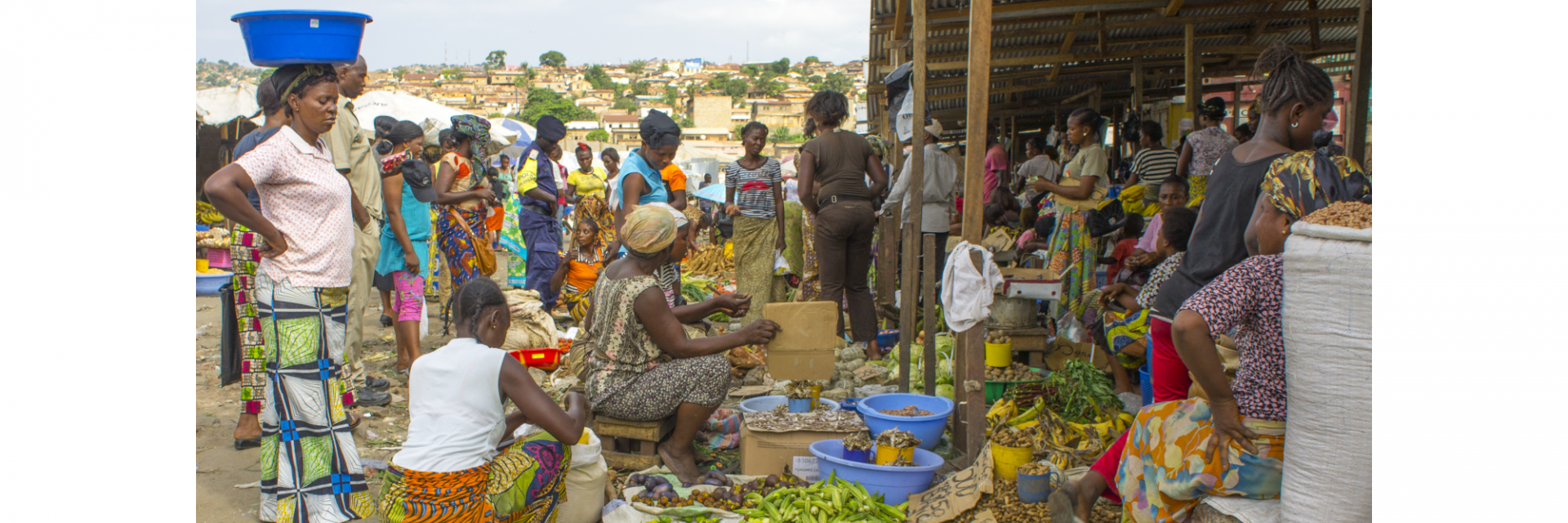Washington, DC, October 12, 2022 (ECA) - African Ministers of Finance, Planning and Economic Development have called for a swift and decisive collective action to address the growing liquidity challenges and food and energy insecurity on the continent.
They were speaking during a meeting of the High-Level Working Group on the Global Financial Architecture (the Group), held on the margins of the 2022 Annual Meetings in Washington DC to discuss Africa’s urgent financial needs amid worsening global economic conditions and recurring global shocks.
Coordinated by the Economic Commission for Africa (ECA), the Group comprises African Ministers of Finance, Planning and Economic Development, the African Union, the African Development Bank, Afreximbank, and the World Bank, and including the participation of IMF staff and Executive Directors,
The ministers proposed a new IMF-led agenda to better respond to the needs of low- and middle-income countries which the current global financial architecture fails to address. The below-stated asks were also echoed by Ministers during the Africa Consultative Group (ACG) meeting chaired by IMF’s Managing Director, Kristalina Georgieva:
Debt and the Common Framework
Ministers expressed concerns about rising debt issues, protracted debt restructurings, and the enduring fragmentation of the global debt architecture. They called on the G-20 to take urgent action to overhaul the Common Framework to make it more effective, time-bound, transparent, and to provide debt service standstill to applicants. The G-20 was urged to expand Common Framework eligibility to middle-income countries, and requested bolder use of the IMF’s Lending into Arrears policy to provide much-needed financing to debtor countries and reduce the leverage of holdout creditors. They also called on all creditors to participate openly and expeditiously in Common Framework restructurings.
A call was also made for major sovereign debt issuance jurisdictions to require enhanced collective action clauses and enhanced force-majeure clauses in all sovereign debt contracts, and to implement comprehensive anti-vulture fund legislation in major creditor countries. Furthermore, they suggested that the Fund play a greater role in the global debt architecture in line with its mandate to facilitate greater debtor-creditor dialogue, including by potentially serving as the secretariat for G20 Common Framework.
New Agenda for Market Access
The ministers called for an enhanced regulatory framework for Credit Rating Agencies that requires transparency in methodology and ratings processes, provides proper oversight for CRAs, and establishes a fair external recourse mechanism to dispute ratings. They appealed for further support in developing and disseminating economic data important to CRAs and investors.
SDRs and SDR Rechanneling
Donors were urged to honor SDR rechanneling pledges in order to provide critical support for low and middle income countries and help redress the inequalities of the SDR system. Ministers urged donor countries to channel at least 30% of their allocation.
SDR allocations, they said, should be considered in a rule-based analytical manner to reduce the discretionary and political nature of the allocation process. The ministers also called for the IMF to clarify and operationalize the provision for allocations in the event of “Unexpected Major Developments.” Ministers called for reforming SDR rechanneling mechanism to promote greater utilization.
Operationalizing the Resilience & Sustainability Trust
They emphasized that Africa contributes negligibly to climate change, with just 3% of global emissions; welcomed the establishment of the RST but urged the IMF to increase the Trust’s flexibility, eligibility and qualification criteria and fast track operationalization; and underscored the need for the RST to play a catalytic role for green financing, encompassing debt-for-nature swaps, green financial products, and carbon credit markets.
An IMF for the 21st Century
The IMF was called upon to suspend surcharges on non-concessional lending for two to three years; restore pandemic--crisis access limits for the Rapid Credit Facility and Rapid Financing Instrument; increase overall access limits; enhance the concessionality and extend the maturity of IMF financing, as well as to reinvigorate its toolkit in response to more frequent global shocks.
In the longer-term, the African ministers encouraged the IMF to address the inequalities of the quota system and increase the Africa share at the next quota review in 2023.
Issued by:
Communications Section
Economic Commission for Africa
PO Box 3001
Addis Ababa
Ethiopia
Tel: +251 11 551 5826
E-mail: eca-info@un.org

